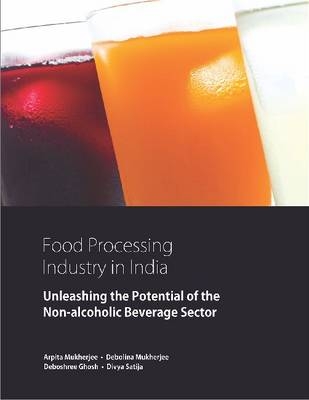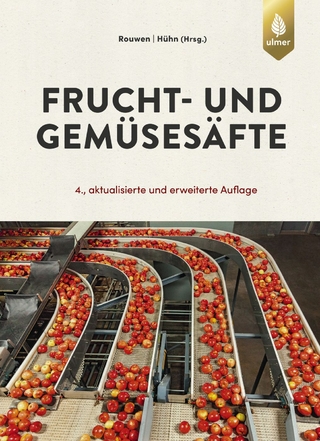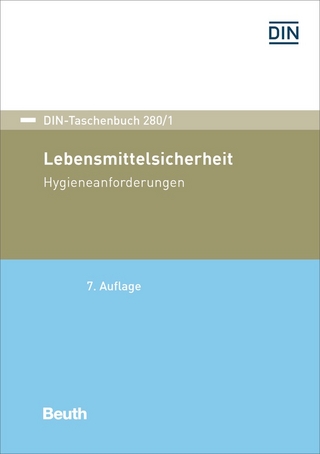
Food Processing Industry in India
Academic Foundation (Verlag)
978-93-327-0113-7 (ISBN)
- Titel nicht im Sortiment
- Artikel merken
The report provides information and market entry and operations strategies to businesses in emerging markets such as India; it enables policy makers to prioritise policy reforms and students can benefit from this industry specific study. The report is the first of its kind which analyses the recent changes in Indian government policies including the policy of allowing 51 per cent FDI in multi-brand retail.
Arpita Mukherjee is a Professor at Indian Council for Research on International Economic Relations (ICRIER), New Delhi. She has several years of experience in policy-oriented research working closely with the governments in India and the UK. She has conducted studies for various international organisations and Indian industry associations. Her research is a key contributor to India's negotiating strategies in the on-going Doha Round of WTO negotiations, in bilateral trade agreements and in domestic policy reforms. Dr Mukherjee has a PhD in Economics from the University of Portsmouth, UK. Her research interests include: services, WTO, bilateral/regional agreements; infrastructure, FDI, agriculture reforms, retail, migration and labour market programmes. She has over 80 publications including books, journals, working papers and government reports. Dr Mukherjee has presented her research at various international and national conferences. Debolina Mukherjee is a Consultant at ICRIER. She has an MA in Economics with a specialisation in monetary economics and finance from the University of Calcutta, Kolkata. Her research interests include: retail and the food and agro-processing industry. At present she is working on a study of India's agro-processing sector with an emphasis on the non-alcoholic beverage manufacturing industry. She is also associated with a study on India's special economic zones (SEZs). Before joining ICRIER, she worked at Tata Consultancy Services, Bangalore, as a business analyst, where she was associated with an AC Nielsen-funded project that analysed the retail sector in the UK. Deboshree Ghosh is a Research Assistant at ICRIER. Prior to this, she was with the Institute of Applied Manpower Research (IAMR)-Planning Commission for two years as a young professional. Her experience includes policy-oriented research on employment, skills and other areas of development economics such as sanitation. Her contributions comprise assistance in the India Human Development Report 2011 and a report on factors impacting the growth of non-agricultural employment in selected states in India. She has co-authored a report on employment in the food processing sector and co-authored a paper on financing skills in India. Apart from research, she has taught macroeconomics to international students at IAMR. She has a BA degree in Economics from Delhi University and an MSc in Economics from the University of Warwick, UK. Divya Satija is a Trade Analyst in the delegation of the European Union to India. Previously, she was a Research Associate at ICRIER. She has also worked on other bilateral trade issues such as the India-EU Broad-based Trade and Investment Agreement, and on sectors such as retail and consumer behaviour, non-alcoholic beverages and IT/IT-enabled services in India. Her broad areas of interest are consumer behaviour analysis, sectoral research, international trade and investments and microfinance. She has several publications as book chapters, journal articles and working papers. She has a BA in Economics from Delhi University and an MA degree in Economics from Jamia Millia Islamia, Delhi.
Foreword
Acknowledgements
Abbreviations
List of Tables, Figures, Boxes and Annexures
Executive Summary
1. Introduction
1.1 Overview of the Food Processing Sector in India
1.2 The Non-alcoholic Beverage Sector: Definition and Classification
1.3 Structure of the Report
2. The Global Non-alcoholic Beverage Sector
2.1 Market Structure
2.2 Operations
2.3 Size of the Sector
2.4 Contribution to the Economy
2.5 Demand Trends around the World
2.6 Global Regulations and Lessons for India
3. The Indian Non-alcoholic Beverage Sector: An Overview
3.1 Evolution of the Sector
3.2 Market Structure and Operations
3.3 Size of the Sector
3.4 Contribution of the Sector to India’s economy
3.5 Governance Structure, Regulations and Incentives
3.6 Primary Survey
4. Survey of Manufacturers
4.1 Research Objectives, Methodology and Sampling Frame
4.2 Key Findings of the Survey
4.3 Manufacturing Process
4.4 Supply Chain
4.5 Other Activities of Manufacturers
4.6 Manufacturer’s Perceptions of Recent Policy Changes
4.7 Conclusion
5. Retailers: Bridging the Gap between Manufacturers and Consumers
5.1 Research Methodology and Sampling Frame
5.2 Characteristics of the Non-alcoholic Beverage Retail Sector
5.3 Linkages: Backward and Forward
5.4 Perceptions of Recent Regulations
5.5 The New Retail Dynamics
6. Consumers and their Demand Patterns
6.1 Profile of Indian Consumers
6.2 Survey: Methodology, Sampling and Objectives
6.3 Findings of the Survey
6.4 Conclusion
7. Barriers and the Way Forward
7.1 Introduction
7.2 Barriers
7.3 The Way Forward
7.4 Conclusion
Bibliography
Annexures
| Erscheint lt. Verlag | 30.1.2014 |
|---|---|
| Verlagsort | Ghaziabad |
| Sprache | englisch |
| Maße | 216 x 279 mm |
| Gewicht | 500 g |
| Themenwelt | Technik ► Lebensmitteltechnologie |
| Weitere Fachgebiete ► Land- / Forstwirtschaft / Fischerei | |
| ISBN-10 | 93-327-0113-X / 933270113X |
| ISBN-13 | 978-93-327-0113-7 / 9789332701137 |
| Zustand | Neuware |
| Haben Sie eine Frage zum Produkt? |
aus dem Bereich


